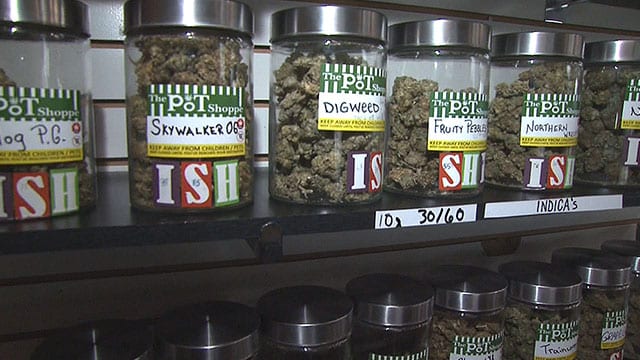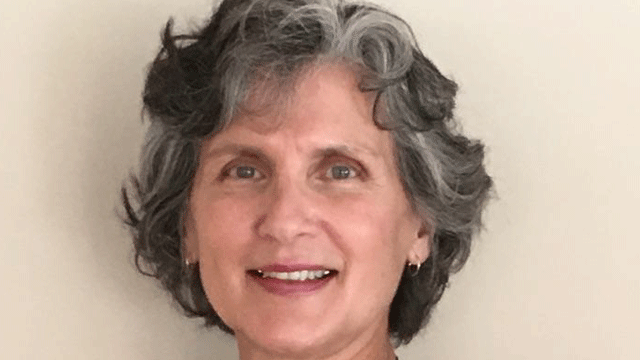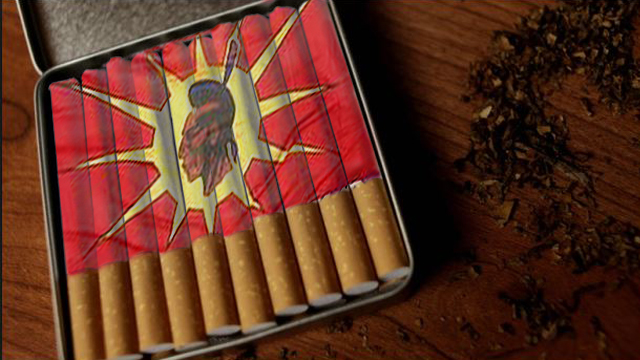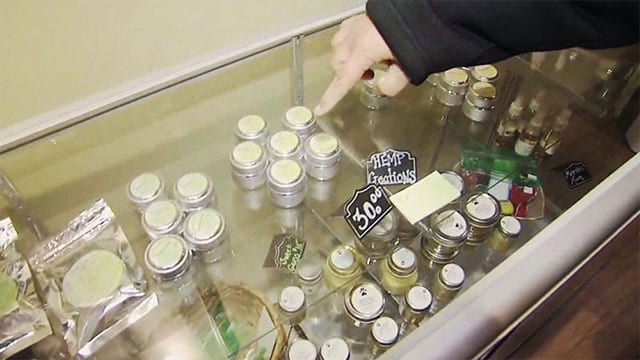
Despite multiple directives to stay home, non-residents stocking up on gasoline, cigarettes and cannabis continued to flood First Nation communities in Ontario and Quebec, which leaders say puts already vulnerable people at greater risk of a COVID-19 outbreak.
First Nation communities close to urban centres or the U.S.-Canada border have reported over a dozen positive cases of the novel coronavirus pandemic, but each community has dealt with the outbreak in a different way and at their own pace. Businesses in some places closed voluntarily but in others remained open.
“People actually come here from Ottawa, Toronto,” Wendy Jocko, chief of the Algonquins of Pikwakanagan, told APTN News.
“It’s incredible the amount of people, really, that come here for the gasoline, the cigarettes and the cannabis.”
Pikwakanagan, 150 kilometres west of Ottawa, declared a state of emergency and began restricting travel on March 30 – weeks later than some communities – though non-essential services closed on March 16.
“We have witnessed a significant influx of people in our community. This increase is deemed to drastically increase the risk of exposure to our members and our front-line workers,” said Jocko in a release.
“That is the danger,” she explained, adding that her community was illness free, though positive cases were confirmed in nearby municipalities where band members often shop.
“If somebody’s coming here for gas or cigarettes, we don’t know what condition they’re in. So that’s why we’ve decided just to close the shops so that we don’t encourage people to come here,” Jocko said.

(Algonquins of Pikwakanagan Chief Wendy Jocko. Photo: supplied)
Fines issued, one arrested in Kahnawake
A few hours east, Kahnawake Mohawk police issued $12,000 in fines to interlopers sneaking on to the territory to buy cigarettes.
The Quebec government recently introduced additional restrictions on non-essential travel to curb spread of the virus. Considering its own outbreak, officials with the City of Montreal even went so far as to recommend that citizens not leave their respective neighbourhoods.
Kahnawake is linked to Montreal by bridge, and is also intersected by two main highways. Despite hefty warnings and a community issued sales ban on all tobacco products, local authorities are receiving reports that outsiders are prowling the area looking to buy.
Over the weekend beginning April 3, Kahnawake Peacekeepers issued 12 separate fines each carrying a $1,000 hit to “to non-locals attempting to purchase cigarettes on the territory.”
“Oftentimes they’ll say they’re not aware of these policies that were put in place,” explained Const. Kyle Zachary, communications officer for the Kahnawake Peacekeepers.
At first, local police allowed an “education period” following enforcement of the sales ban, letting drivers turn around and leave with clear guidelines and a warning.
Now that time has passed and warnings have been doled out, Zachary says Peacekeepers will continue handing out fines, especially to those who return and disregard prior warnings.
Aside from tips by residents, police are also alerted to outsider presence based on driving habits, according to Zachary.
“They’ll slow down, they’ll even stop sometimes,” he said. “They’ll pull into the store, and then out of the store, and onto the next store.”
One man, a Lachine, Que., resident returning from Ontario, was arrested on April 5 after he was observed doing exactly that.
When stopped by the Peacekeepers, the man explained he wasn’t aware of the policies in place in Kahnawake because he’d been out of town. He also let out that authorities at the Ontario-Quebec border instructed him to go home and self-isolate for 14 days.
“Instead of doing that, he came directly into our territory and started looking for cigarettes,” Zachary said.
Kahnawake had at least five confirmed positive COVID-19 cases as of this posting.
Despite the heavy-handedness of the penalties, Zachary said police are just trying to prevent their community from further impact by the virus.
“Peacekeepers – we also reside here right? We live here. Our families are here – we’re all going to come together to keep us all safe,” Zachary explained. “It’s what this community’s been known to do in the past.”
‘Congregations of people buying cigarettes’
Back in Ontario, Canada’s largest First Nation community remained the hardest hit, with nine confirmed cases as of April 6.
But when Six Nations of the Grand River confirmed their first two cases, leadership implored gas stations to halt tobacco sales and asked smoke shops to close voluntarily.
“I’m also now calling on, urging all smoke shops to close immediately. As I drove into the radio station today I just see nothing but lineups of congregations of people buying cigarettes,” said elected Chief Mark Hill.
“What is more important at this point: the sale of cigarettes and money or the health and safety of our community?”
Gas stations are an essential service, according to the Ontario government’s list. Cannabis shops were among the businesses removed from the essential list on April 3.
But many First Nation communities don’t regulate cannabis or don’t abide by Ontario’s regulations, and have numerous pot shops that non-residents flock to – the small community of Pikwakanagan has eight, Jocko said.

Non-members ‘abusing the exceptions’; accessing smoke shops
Walpole Island First Nation, a community in southern Ontario right next to the Michigan border, deals with high traffic coming through the community, with many buying tobacco, cannabis or gas.
“It’s a high number. It’s fair to say, in the triple digits daily of non-members coming onto the island,” said James Jenkins, Walpole’s director of operations.
“We don’t currently regulate cannabis but there are a number of stores here. There’s over a dozen smoke shops normally and we do have a full-service gas bar.”
The community, which is roughly 150 kilometres from both Windsor, Ont., and Detroit, Mich., closed its international ferry when COVID-19 hit the area. They set up a bridge checkpoint on April 1.
The bridge and the ferry are the island’s only two entry points.
“But what we found was, even with our own police presence at the bridge, we were still having enough non-members, non-residents enter.”
After Ontario changed the essential services list Walpole still had numerous “non-members continuing to access things like smoke shops and the gas bar,” Jenkins said.
They began instructing non-members to stop only at the gas station and then head straight off the island.
“And we were finding just many instances of people not taking those instructions and basically abusing the exceptions we had for people to come in.”
Amid growing concern, community leaders closed the island to all non-members on April 6 and asked cottagers to stay away.
“It has become impossible to adequately protect our members without more aggressive restrictions,” Jenkins said in a release.
There are also “question marks” about long-term economic impacts for on-reserve businesses.
In a statement sent to APTN, Indigenous Services Canada (ISC) confirmed that on-reserve businesses can apply for the same economic reliefs as those off-reserve.
Band councils can also use the $305-million Indigenous Community Support Fund to help take additional stress off their local businesses.
ISC announced on March 25 that the First Nations portion of that fund is $215 million.
Jenkins said Walpole began using their share to stock up on essential supplies like food and hand sanitizer, though procuring sanitation supplies and personal protective equipment proved difficult.

Some shops still open
While provincially regulated cannabis shops closed, Walpole’s remained open though serving only local traffic.
They’re also open on Tyendinaga Mohawk Territory, which has dozens.
Tyendinaga Mohawk Council declared a state of emergency on March 17 and encouraged restaurants to halt dine-in options on March 20.
Chief and council ordered all businesses to close by midnight March 28 to implement COVID-19 safety measures before reopening on April 1.
But chief and council were soon apologizing for “our role in what happened Saturday [March 28], with the short-term influx of people in our community.”
“It was never our wish to have that happen and maybe our plan lacked some of the foresight needed,” elected leadership said in a press release dated March 31.
They also blamed “misleading headlines put out by local media” for driving the flood of non-resident traffic.
An employee at Legacy 420, the territory’s largest cannabis shop, said they’re following directions from chief and council, who haven’t issued the order to close.
“There definitely is a fear that people do have” of non-residents bringing the virus in, said Jordan Brant, noting that outsiders are still visiting the shop though overall traffic has slowed.
“We’ve gone above and beyond most requirements and expectations, for sure, to make sure that our community and our staff and employees are protected,” he added.
Tyendinaga elected Chief Don Maracle did not respond to an interview request by publishing time.










without putting memebers at risk. How can customers acces products? Is there an online service with delivery? Does anybody know?